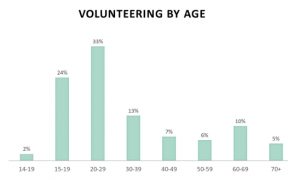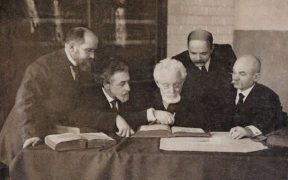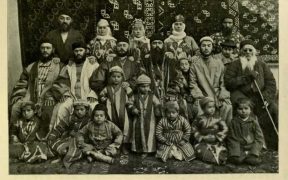Category: Jewish Identity and Identification

Euro-Asian Jewish Policy Papers, No 42 (December 2020) The ethnographic term “sub-ethnos” (sub-ethnic group) describes both new and historical groups of the Jewish people that stand out for their sustainable culture and language peculiarity. The ...

Euro-Asian Jewish (EAJ) Policy papers, No 40 Contemporary Azerbaijan Jewry includes three subethnic Jewish groups (Mountain, Georgian and Ashkenazi Jews) and thus demonstrate peculiar collective identity. This identity is a subject of close relationship with ...

Euro-Asian Jewish Policy Papers, No 34 (21 April 2020) Numerous Jewish periodicals and publishers were an important result of the three decades of the Jewish cultural revival in the late USSR and the post-Soviet states. ...

EA Jewish Policy Papers (No 33), 20 April 2020 Reсent three decades were a period of almost unlimited development in the post-Soviet Euro-Asia of an impressive system of the Jewish periodicals and publishers. Including electronic ...

EAJ Policy Papers, No 26 (16 Sept 2019) On July 19, 2018, the Knesset adopted the Basic Law on the National Character of the State, and since then there has been ongoing discussion in the ...

EAJ Policy papers, No 24 (August 2019) In most countries of the modern world, Jewish museums have become an indispensable component of the cultural life. In Europe, the history of the establishment and development of ...

EAJ Policy papers, No 22 (May 2019) Several states of the Southern and Eastern Asia at different stages of their history were the home of prosperous Jewish communities. India, which after a long period of ...

Euro-Asian Jewish Policy Papers, No 20 (May 8, 2019) In the majority of the Middle Eastern Muslim states the Jewish life is obviously going to the end. Jewish repatriation from the countries of Islam to ...

EAJ Policy Papers, No 18 (12 April 2019) In his article published in the No 15 issue of the Euro-Asian Policy Papers, Olaf Glöckner had presented a long list of problems that Russian Jewish immigrants ...

EAJ Policy Papers, No 11 (Feb 4, 2019) Yiddish, the traditional language of Ashkenazi Jews, almost disappeared as a means of live communication in Eastern Europe and in the post-Soviet countries due to cultural assimilation ...

EAJS Policy Papers, No 9 (Jan 21, 2019) In the late 1980s, JDC resumed its work in the Soviet Union. It continued to operate in the new countries that emerged upon its dissolution. Since then, ...

Euro-Asian Jewish (EAJ) Policy papers, No 7 (Jan 2, 2018) The cultural-linguistic group of the Jewish people, which is known in modern Israel at the day-to-day communication practice as “Rusim” (“Russians”) and called “Russian-speaking Jews”in ...

Euro-Asian Jewish (EAJ) Policy Papers, No 1, Nov 19, 2018 The Jewish collective experience has undergone a dramatic change over the course of the 20th century. Traditional sub-ethnic Jewish communities that always constituted a minority ...














